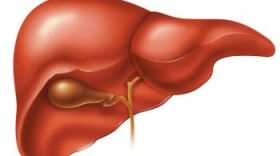The Transplant Games of America are traditionally put on once every two years for athletes who are organ donation recipients. Living organ donors can also compete. Hundreds, if not a thousand athletes from all over the country are expected to compete in a dozen sporting events including track, volleyball, golf, basketball, tennis and several others.
The games are held to promote organ donation and, according to the organization’s website “to show the world that transplantation is a treatment that does indeed work.”
60-year-old Steve Vanheest dealt with a chronic kidney disease since he was 18. In 2007 his younger sister donated one of her kidneys to Vanheest. Now he says he feels great.

He first competed in the transplant games in 2010. He picked up a bronze medal in a track event for his age group.
"You realize right at the outset that you’re going to try to do your best, they’re going to try to do their best, but you aren’t going to try to do anybody in. And if somebody should fall or sputter in some way there would be a strong inclination to help them finish,” Vanheest said of his first experience at the transplant games in Madison, Wisconsin.
Vanheest says the transplant games help people with new organs gain confidence, and help people who are waiting for transplants gain hope. He says the games also attract family members of people who’ve died and had their organs donated.
Not only is he a transplant recipient, Vanheest is also the Living Donor Advocate for the Helen-DeVos Children’s Hospital and Director of Pastoral Care and Bereavement there.
%22There%27s%20new%20life%20following%20transplantation.%20There%27s%20a%20surge%20in%20hope%20and%20there%20are%20goals%20that%20can%20be%20achieved.%22
He’s a big part of a workshop Spectrum Health has organized to help support people through the games.
“We wanted to offer a different kind of medic station,” Vanheest said. “One to support people’s emotional, social and spiritual needs.”
Not all transplants take the first time and set-backs are not uncommon. Vanheest says participants in the games are very empathetic.
“There’s a journey involved in transplantation and that journey for some can be straight but for most of us it’s winding. It involves detours and circling back to milestones again and wondering if you’re making progress,” Vanheest said.
Currently, around 3,000 people in Michigan are waiting for an organ transplant.
This year the transplant games got a big boost from the West Michigan Sports Commission to even happen. The Grand Rapids Press and MLive.com reported in depth on the effort to pull the games together in time here.





